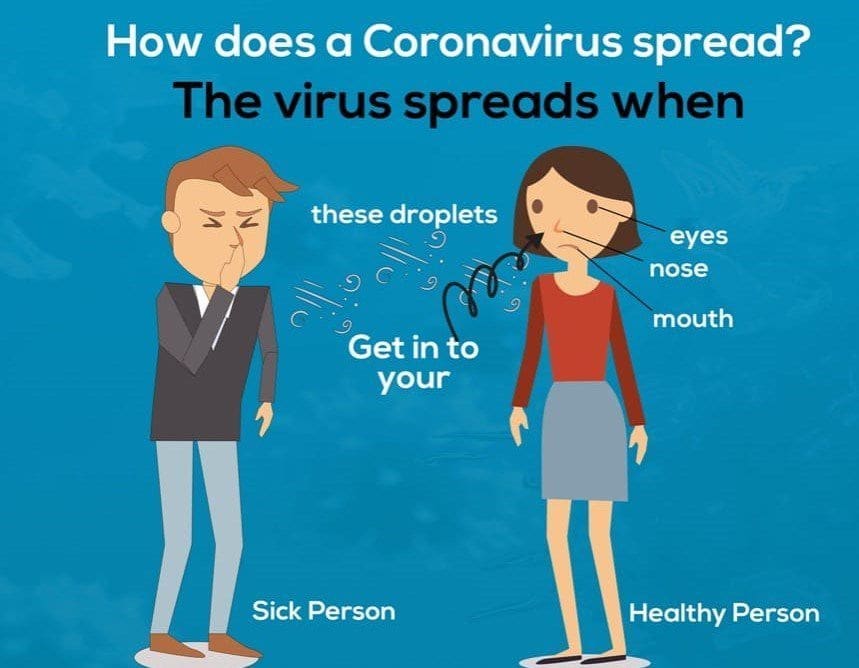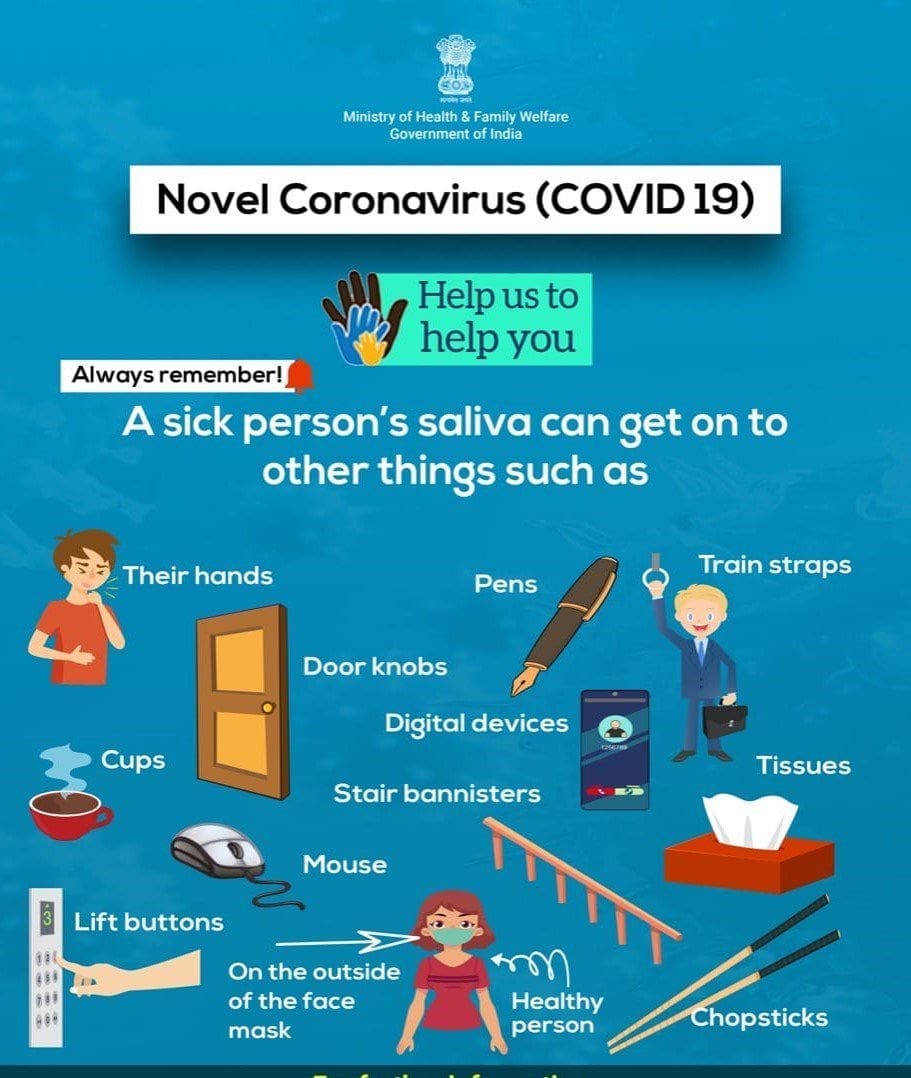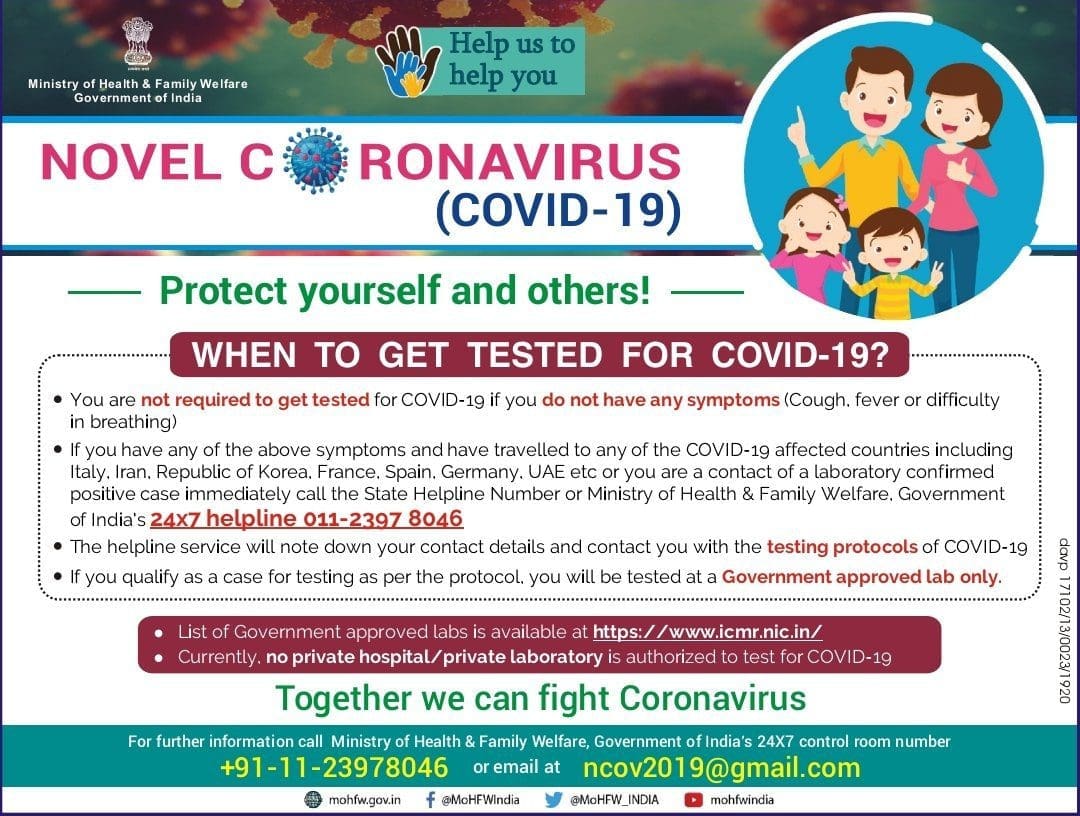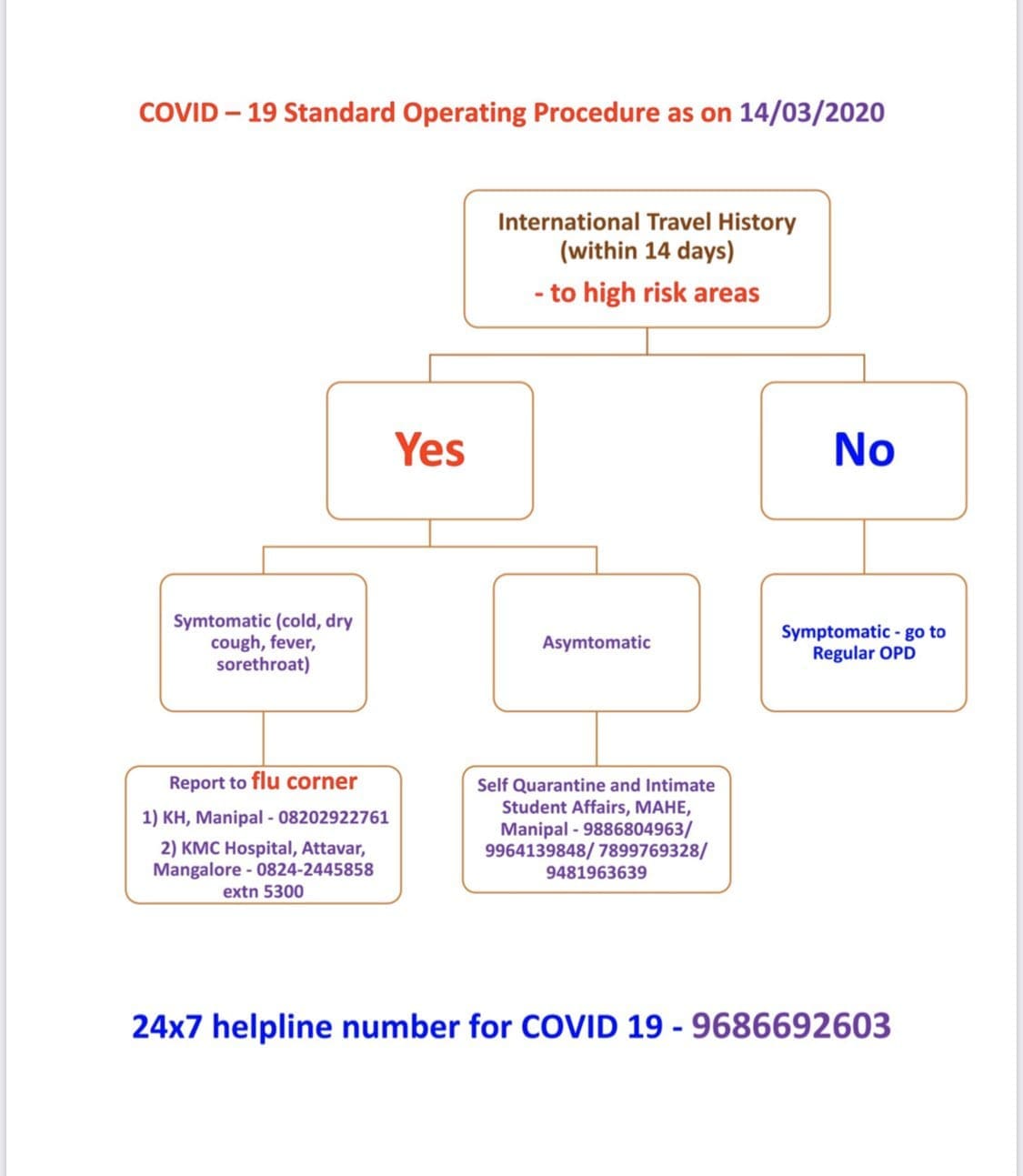
As you are aware the world is currently experiencing a multi-country epidemic of Coronavirus Diseases (COVID-19) caused by a virus known as Severe Acute Respiratory Syndrome Coronavirus -2 (SARS-CoV-2). The disease emerged in early December 2019 in Wuhan city of Hubei province in China. As of 10th March 2020, there are 114,578 cases of COVID-19 reported from 115 countries.
While the case numbers are declining in China, active community transmission is ongoing in Italy, South Korea, Iran, France, Germany, Spain, USA Japan and several countries in Europe and the middle east. India has reported 83 cases, and two deaths, as of 9 am on 14.03.2020 from various states of India including Karnataka.
Three students have been placed in isolation at Kasturba Hospital Manipal and one person from Shivamogga with a travel history to Saudi Arabia is in quarantine. As of writing this – the first sample of all the students and the quarantined person has come back negative.
However, as of now, all cases are associated with travel or close contact with a known case. MAHE, Manipal has taken adequate steps to ensure the safety of students and staff.
This is the latest guidance issued by Manipal University (MAHE Manipal) to all its students and staff to stay safe during the Covid-19 pandemic.
Coronaviruses are a large family of RNA viruses. In humans, several coronaviruses are known to cause respiratory infections ranging from the common cold to more severe diseases such as Middle East Respiratory Syndrome (MERS) and Severe Acute Respiratory Syndrome (SARS). The most recently discovered coronavirus (SARS-COV-2) causes coronavirus disease COVID-19.
2. What is COVID-19?
COVID-19, also known as Coronavirus, is a new respiratory virus first identified in Wuhan, Hubei Province, China, which has spread globally, including India.
3. What are the symptoms that COVID-19 can cause and how is the virus spread?
- The most important symptoms to look out for in COVID-19 are fever, dry cough, and sore throat.
- Some people become infected but don’t develop any symptoms and don’t feel unwell.
- People with fever, cough and difficulty in breathing should seek medical attention.
4. How does COVID-19 spread?
- The disease can spread from person to person through small droplets from the nose or mouth which are spread when a person with COVID-19 coughs or exhales.
- People can also get infected by touching objects or surfaces contaminated by the virus.
5. What can I do to protect myself and prevent the spread of the disease?
- Practice frequent hand washing with soap and water or clean your hands with an alcohol-based hand rub whenever the need arises.
- Avoid frequent touching of the face, eyes, nose and mouth without washing hands
- Follow social distancing by keeping at least 1 meter (3 feet) away from sick persons/person with fever or cough.
- Avoid mass gathering
- Make sure you, and the people around you, follow good respiratory etiquette [covering the mouth while sneezing or coughing]
- Throw used tissues into closed bins immediately after use
- Stay home if you feel unwell. If you have a fever, cough and difficulty in breathing, seek medical attention.
- Follow the advice given by the healthcare provider and the public health authority on how to protect yourself and others from COVID19.
6. What should I do if I visited any areas where COVID 19 is spreading in the past 14 days?
- If you have returned from any place that is currently experiencing an outbreak of COVID– 19,
- If asymptomatic – Please inform the concerned authorities and quarantine yourself in your room/house and limit your contact with others for a period of two weeks.
- If you develop fever, cough and difficulty in breathing report to the healthcare facility (Emergency department of KH, Manipal, Contact number-08202922761)
7. How likely am I to catch COVID-19?
The risk depends on where you live or where you have travelled recently. The risk of infection is higher in areas where a number of people have been diagnosed with COVID-19. For people in most other parts of the world, your risk of getting COVID-19 is currently low.
8. Who is at risk of developing severe illness?
While we are still learning about how COVID-19 affects people, older persons, immunocompromised and people with pre-existing comorbid conditions appear to develop serious illness more often than others.
9. Are antibiotics effective or treating the COVID-19?
No. Antibiotics do not work against viruses, they only work on bacterial infections. COVID-19 is caused by a virus, so antibiotics do not work.
10. Is there a vaccine, drug or treatment for COVID-19?
Not yet. To date, there is no vaccine and no specific antiviral medicine to prevent or treat COVID-19. However, those affected should receive care to relieve symptoms. People with serious illness should be hospitalized. Most patients recover with supportive care.
11. Should I wear a mask to protect myself?
Use a mask only if you have respiratory symptoms (coughing or sneezing), have suspected COVID-19 infection with mild symptoms, or are caring for someone with suspected COVID-19 infection.
12. How long is the incubation period for COVID-19?
The “incubation period” means the time between catching the virus and beginning to have symptoms of the disease. Most estimates of the incubation period for COVID-19 range from 1-14 days, most commonly around five days.
13. How long does the virus survive on the surface?
It is not certain how long the virus that causes COVID-19 survives on surfaces. Studies suggest that coronaviruses (including preliminary information on the COVID-19 virus) may persist on surfaces for a few hours or up to several days.
14. Is it safe to receive a package from any area where COVID-19 has been reported?
Yes. The likelihood of an infected person contaminating commercial goods is low and the risk of catching the virus that causes COVID-19 from a package that has been moved, travelled, and exposed to different conditions and temperature is also low.
15. Is there anything I should not do?
The following measures ARE NOT effective against COVID-2019 and can be harmful:
- Smoking
- Wearing multiple masks
- Taking self-medication such as antibiotics
16. Can we use the biometrics for attendance?
Biometric attendance system followed in the institutions and hospitals shall be stopped with immediate effect, until further orders. However, biometric attendance prescribed by the statutory bodies has to be continued with due care until further instructions from the respective statutory bodies.
This advisory has been issued on 10th March 2020. We will update this article if there are any further changes to the guidance at a later date.
COVID-19 ADVISORY
(Ver. 1 – 14/03/2020. This advisory will be updated frequently based on the evolving scenario)
As per the directives of Government of Karnataka, as a precautionary measure to prevent the spread of COVID-19, MAHE has declared a holiday for the students of its constituent colleges/institutes in Manipal, Mangalore and Bangalore campuses for a period of two weeks, from 14th March to 28th March 2020.
As this is a measure to reduce social contact, students are advised to refrain from non-essential travel and mass gathering (such as partying, attending or organizing mass events, functions, etc.).
All healthcare workers including interns, postgraduates and residents (medical, dental, allied health and nursing) will continue to discharge their duties as usual.

If anyone develops symptoms of fever and/or cough they are advised to report to the ‘Flu Corner’ in the hospital premises of;
1) Kasturba Hospital, Manipal – 0820-2922761
2) KMC Hospital, Attavar, Mangalore – 0824-2445858 extn. 5300
Also read – Coronavirus and tackling misinformation.

very informative..thank you very Vishal..
Hi,
Thank you for dropping by. The information has been collated from Manipal University guidelines and not written by the author.